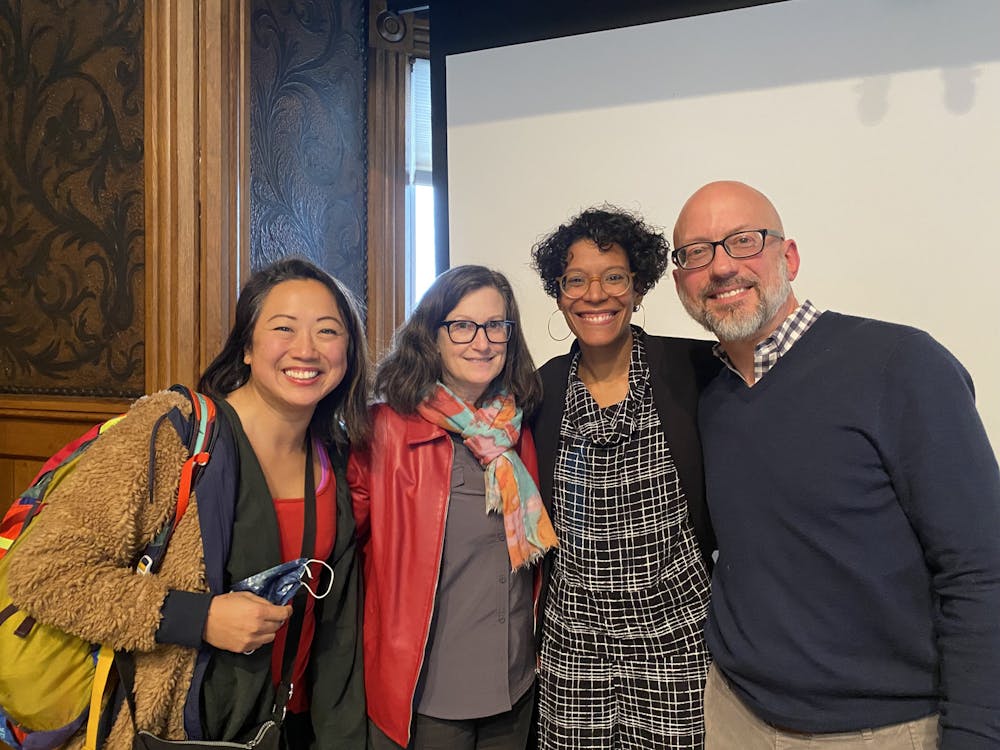Content warning: This article includes several mentions of rape and sexual assault.
On Wednesday, Assistant Professor of History Emily Owens invited the Brown community to celebrate the launch of her new book “Consent in the Presence of Force: Sexual Violence and Black Women’s Survival in Antebellum New Orleans” at an event sponsored by the Department of History.
The book, published last December, tells a "history of Black women who were enslaved in New Orleans and whose enslavement was shaped by sexual service," Owens said.
While the sexual violence faced by enslaved women is an undisputed fact, Owens said she doesn't “take that for granted” in her book. Instead, she investigates the social structures that first made it possible for such sexual violence to be “so common.”
Owens organized her book around the recorded cases of enslaved women in New Orleans who "were selling their bodies" and utilized the legal system to demand their freedom. The case studies allowed her to “open up a larger critique of rape law as a specific legal object and also consent as an ideological principle," she said.
Owens highlighted the tension in using the term consent, which implies the power to grant permission, as a legal framework to categorize the sexual relations of women whose lives were shaped by systemic violence and objectification.
"The sexual violation of Black women was foundational to the American culture of sexual violence expressed in the guise of consent," she said.
At the event, Owens was joined by fellow feminist scholars: Aliyyah Abdur-Rahman, associate professor of American studies and English; Bonnie Honig, professor of modern culture and media and political science; and Elena Shih, assistant professor of American studies.
Abdur-Rahman, who read Owens’ manuscript three years ago, highlighted how the book puts pressure on typical definitions of rape and its relationship to consent.
In the book, Owens demonstrates how enslaved women’s nullified legal presence turned consent into another tool of force and domination, highlighting “the simultaneous possibility and impossibility of contractual sexual arrangements between owners and enslaved” women, Abdur-Rahman added.
For Honig, the strength of Owens’ book lies in its ability to place consent in the context of slavery as a “Trojan Horse” — while the transactional framework of exchange and contract seemingly recognizes enslaved women’s ability to say “yes,” it instead “enters a man’s arsenal of abuse.”
Owens found a “pattern of pursuit, threat debt, and grievance that creates … ‘a climate of sexual terror’” in the narratives of the women her book engages with, Honig said.
Shih, visibly moved by the opportunity to celebrate Owens’ project, commended Owens' ability to take narratives of the women she engaged with “at face value” instead of ascribing her own academic interests to their stories.
Owens is looking at “the ways consent has been weaponized” while dismantling the fallacy that there can't be violence within transactions, Shih said.
"To say it plainly, (the book) blows me away," Abdur-Rahman said.

Julia Vaz was the managing editor of newsroom and vice president on The Herald's 134th Editorial Board. Previously, she covered environment and crime & justice as a Metro editor. A concentrator in political science and modern culture and media, she loves watching Twilight (as a comedy) and casually dropping the fact she is from Brazil.





